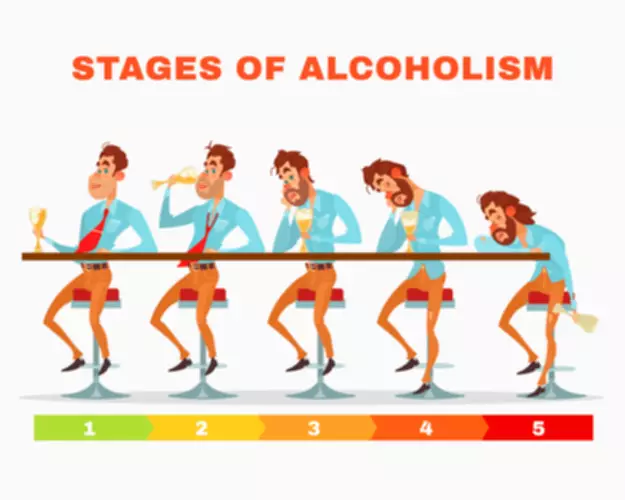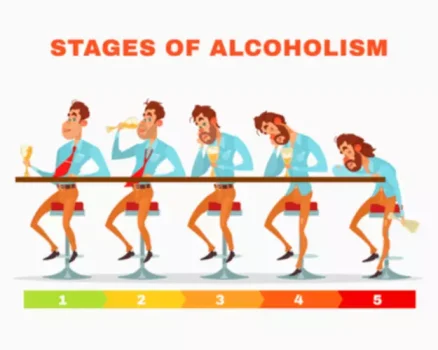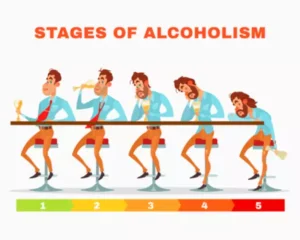
Once you notice patterns, your provider may have you try an elimination diet to see if your symptoms improve when you stop consuming something that could be a trigger. A food and symptom diary can help alcohol sneezing you keep track of when your symptoms appear and whether they line up with certain things—such as alcohol. If you get gustatory rhinitis, there are many treatments and management methods to choose from. Avoiding alcohol is the only sure way to prevent an alcohol-related reaction.

When to See a Healthcare Provider
If you have symptoms after drinking beer, but not after drinking wine or other alcoholic beverages, it’s not alcohol intolerance. More likely, you’re allergic to or sensitive to a particular ingredient in that beer. An alcohol intolerance, or ingredients like histamines in alcohol cause an allergy-like reaction in drinkers, swelling the the mucosal membranes in the nasal passages and airways. Avoiding problematic ingredients or taking a supplement to reduce acetaldehyde buildup and intolerance symptoms can help prevent nasal congestion from drinking. This will help to soothe the mucous membranes in your nose and prevent them from swelling and triggering a sneeze. Like wine, beer also contains histamines, which can trigger sneezing.
The Reason Behind Sneezing After Drinking
- A food (or drink) intolerance is different from a food allergy in that intolerance is not mediated by the the immune system protein IgE.
- With intolerance or sensitivity, your digestive system gets irritated by certain foods or has trouble digesting them.
- The process starts with an enzyme in your liver, called alcohol dehydrogenase (ADH), which converts ethanol into acetaldehyde.
- Nearly 1.2 percent of adults in the United States are allergic to wheat.
- But alcohol tolerance is more complicated than just being “a lightweight” or not.
Alcohol intolerance occurs when your body doesn’t have the proper enzymes to break down (metabolize) the toxins in alcohol. This is caused by inherited (genetic) traits most often found in Asians. If you find that warm drinks make you sneeze, try chilling them before you drink them. Spirits such as vodka and gin can also cause sneezing due to the presence of histamines. In addition, some people find that the alcohol in these drinks irritates their nose, leading to sneezing. When the immune system views something (an allergen) as a threat, it attempts to defend the body.
Alcohol Allergies Can Cause Sneezing, Flushing, Headache
This could be due to the histamine response, which is common when you’re allergic to something. “Most reactions are mediated by a histamine pathway and it behaves like any allergy,” Dr. Luiza Petre, M.D., a cardiologist, tells Bustle. As a result, their bodies produce inactive ALDH enzymes that are unable to properly break down the alcohol into acetic vinegar. This incomplete processing of the alcohol can cause the body to react by producing symptoms that reflect an allergy to the alcohol. People with this gene deficiency suffer two-fold from allergic symptoms to alcohol. First, the body produces histamines in response to the presence of the alcohol that the body is unable to digest.
It appears to be genetic and to occur after eating large meals and doesn’t cause any major problems. Finally, acetate is further broken down into water and carbon dioxide and, voila! If your body can’t do this well enough, you will have a reaction. Nasal polyps are soft, noncancerous growths on the lining of the nose or sinuses. Quercetin is a plant pigment that has been shown to cause sneezing in some people.

Final Thoughts on Why You Get a Stuffy Nose After Drinking
Even if you only have mild symptoms of alcohol intolerance, you should avoid alcohol. Research has shown that some people with mild symptoms of intolerance can get used to the symptoms of excess acetaldehyde in their bodies. However, acetaldehyde is still highly toxic and can significantly increase the risk of cancer. Having an alcohol intolerance is a genetic condition that means your body can’t process alcohol easily. With this condition, you have an inactive or less-active form of the chemical that breaks down alcohol in your body. Alcohol intolerance is a real condition, but it can sometimes be confused with other related conditions, such as allergies or drug interactions with alcohol.

What Are the Symptoms of Alcohol Intolerance?
People of Chinese, Japanese and/or Korean descent often have a variant of one or both enzymes that leads to an impaired ability to metabolize alcohol. If you suspect you have an allergy to wine, make an appointment with a healthcare provider. Only a healthcare provider can formally diagnose allergies. These include proteins, enzymes, dairy products, molds, and ingredients used in the production of wine.
Health Challenges

Sulfites, histamines, and tannins are among some of the substances believed to contribute to a wine intolerance. Although an intolerance may cause similar symptoms to allergies, intolerance is not the same as an allergy. Wine contains proteins from grapes, bacteria, and yeast, as well as sulfites and other organic compounds. Other studies have found that egg whites and gelatin are often used in the filtration processing of wine. In the United States, about 2 to 3 percent of adults have some type of food allergy. About 5 percent of children have a food allergy, but many outgrow those allergies by adulthood.
- Hazelnut or almond in liquor can also be a problem for those with an allergy to nuts.
- Of course, digestive trouble is a leading symptom of many health conditions, so you’ll want to consult your doc before diagnosing yourself with, say, a tequila allergy.
- Rhinophyma — also sometimes referred to as “alcoholic nose” — is a physical condition that many people assume is caused by alcohol use disorder (alcoholism).
For more advanced forms of rhinophyma, the most effective way to manage thickened skin is almost exclusively through physically removing excess tissue. Sometimes, this can include relying on ablative lasers or electrical currents (a treatment known as diathermy) to help remove excess tissue. Some people might be prescribed a low dose course of isotretinoin (Accutane) to help shrink enlarged oil glands that might also be contributing to skin thickening and symptoms.
